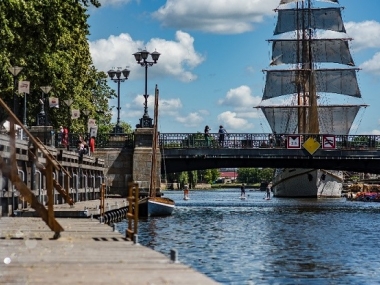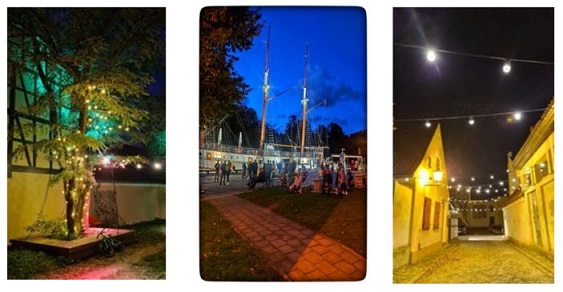Integrating sustainability in Klaipėda
Edited on
18 August 2022By Reda Švelniūtė
Klaipėda is the port city and the third largest city by population in Lithuania (150.000 residents). Its urban transport challenges are highly related to urban development challenges and trends. During the last years, Klaipėda experienced rapid and unplanned suburbanization. Growing urban sprawl led to increased automobile usage, shrinkage of public transport usage and decay of historical oldtown public spaces, therefore decrease in walking and cycling habits.

During the last years, the city decided to bring back sustainable development agenda: city masterplan, strategic vision and other important planning documents focusing on the regeneration of existing urban areas, compact city, public spaces livability and sustainable transport.
Klaipėda’s SUMP was adopted in 2018 by the city council. Klaipėda’s SUMP vision for 2030 is Klaipėda – healthy, environmentally friendly, fast and comfortable city and it has three main targets:
1 – public transport development (implement fast public transport lines, make existing public transport faster, safer, more comfortable, develop multimodal transport interchange hubs);
2 - promotion of non-motorised movement (historical old town for pedestrians, cycling infrastructure network, bike sharing system, walking/public space infrastructure in local neighborhood centers, infrastructure for people with disabilities in streets and public spaces);
3 – more sustainable car traffic (implementation of intelligent transport systems, development of electric car infrastructure, implementation of road safety measures).
Klaipėda's commitment to the SUMP has led it to join the URBACT project "Thriving Streets", with the aim of making its Old Town a model of a thriving local economy with people-oriented streets. As part of the “Thriving Streets” project, we wanted to involve the community and businesses more in seeing the benefits of SUMP measures and contributing to their implementation.
Our plan was to foster a sense of community identity with SUMP measures such as: better walking conditions and safety in the residential neighborhoods, especially in monofunctional residential areas built in Soviet times; renovation of public spaces and parks, better cycling infrastructure in the city, and a better environment for people with disabilities. However, implementing sustainable mobility measures often involve resistance from the city population and business, as it is difficult to give up traveling by private cars, and closed streets, as well as more space for pedestrians, cause inconvenience.

The small-scale action (SSA) implemented during the project aimed to change the perception of Old Town business owners and residents towards the creation of new spaces for public use in the Old Town by closing the streets to traffic.
The plan was to organize a series of events in different locations in the Klaipėda Old Town together with the Old Town businesses and community. We managed to organize three events on different themes: cinema night, arts courtyard and the historic St. John's Church Restoration Auction-Concert. During the events, the venues were closed to traffic and the spaces were designed to be pleasant to sit and socialize in, with entertainment, food and drink on sale. The SSA events were well supported by businesses and residents in the Old Town, and we received a lot of good feedback that encourages us to continue what has been started.
Additionally, through the implementation of the SSA, the project team managed to test in practice the expectation that businesses and residents of the Old Town have consistently placed on the Municipality - that the Municipality has to initiate, organize and finance events in the Old Town in order to attract more visitors to it. But the experience has shown that there was a lack of community spirit and people were unwilling to take the initiative.
Despite the fact that the organization of the SSA and the events organized under the project attracted fewer businesses and residents than expected, a team of five people has been set up in the Old Town, which is ready to continue the started work. Also, Municipality will continue its focus to involve the community and businesses more in seeing the benefits of SUMP measures and contributing to their implementation.
Submitted by Francesca Blamonti on
